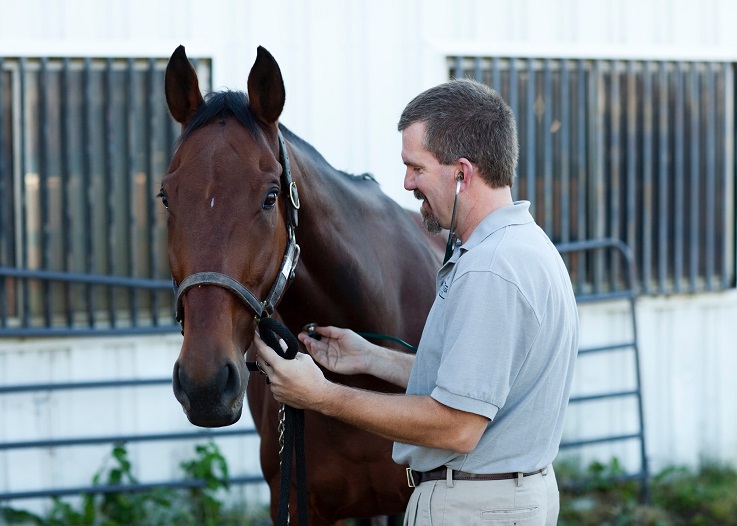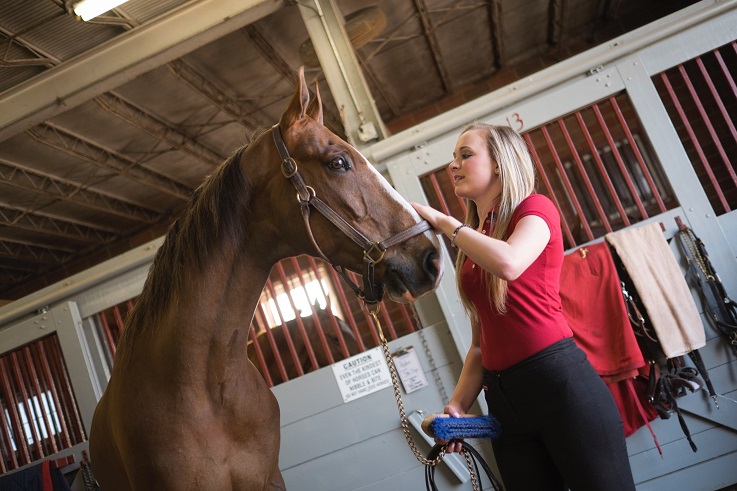New study shares equine medicine recommendations for veterinarians treating pregnant mares

Biology majors in the pre-veterinary concentration at William Woods University — especially those who take full advantage of the opportunity to work side-by-side with our resident veterinarian, Dr. Schiltz — are accustomed to seeing the varying medical needs of horses in varying stages of life. They also know that as technology and medicine advance, so does the level of care we can offer our patients.
In this post, we will be taking a closer look at equine pregnancy and sharing some tips with pre-vet majors interested in an equine medicine specialty for better ways to treat mares in that stage of life.

Did you know that mares are pregnant for an average of 320 to 370 days?
That’s about a full year of considering not only the wellbeing of your patient, but your patient times two, when deciding on recommendations for medical care and treatment plans.
There are a few unique factors that come into play when treating pregnant mares. In general, pregnant mares are likely to suffer more serious consequences when exposed to disease than horses that are not pregnant, as any infection can put them at risk of miscarriage. It can also be difficult to treat pregnant mares suffering from infection, because many medications that would typically be used to treat infection can be harmful to the fetus.
Aime Johnson, DVM and associate professor of theriogenology at Auburn University College of Veterinary Medicine recommended in an article on The Horse that pregnant mares be “separated from horses such as young stock and competition animals that are more likely to pick up and carry illnesses.”
When the need for treating pregnant mares goes beyond medicine and requires surgery, such as in removing messes or repairing wounds, the risk is heightened.
Veterinarians already know that using general anesthesia when performing surgery on horses has a reported mortality rate of 0.12-1.6 percent, and that pregnancy can heighten those risks and reduce live-foaling rates. Therefore, researchers set out to evaluate the safest time to administer general anesthesia to horses during elective surgeries, if it is necessary.
Veterinary anesthesiologist John A.E. Hubbell, DVM, MS, Dipl. ACVAA, and his colleagues at Rood & Riddle Equine Hospital in Lexington, Kentucky, recently concluded that if surgery requiring general anesthesia must be performed on pregnant mares, the safest time frame in which to perform the surgery is between Day 40 and Day 220 of gestation.
Greater detail on what considerations went into this recommendation and various studies researchers analyzed can be found in an article published in The Horse. And although this is his general safety recommendation, Hubbell still suggests veterinarians consider specific health factors of each individual patient before making the decision to put them under anesthesia.
“The decision to anesthetize a pregnant mare is made on a case-by-case basis,” Hubbell said in the article. “Factors to consider include the general health of the mare, her age (an increased anesthetic risk on its own), the anticipated duration of the procedure, and any previous history of foal loss. In most cases the risk of anesthetizing the mare for surgery must be weighed against the risk of leaving a condition untreated.”
William Woods University pre-vet majors will further explore and discuss tough equine medicine topics such as equine pregnancy in courses like EQS 404: Veterinary Medicine & Reproduction.

